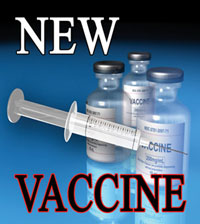(FinalCall.com) – A Boston-based company, Emerging Portfolio Fund Research Global, Inc. (EPFR), a provider of fund flows and asset allocation data to financial institutions around the world, reported on May 1 that health-care and biotechnical companies recorded their first week of stock price increases since February.

According to market watchers, the biotech industries stock section was one of the few groups that hadn’t been participating in the recent market rally.
The Canadian Money Forum in a report “Swine Flu Effects on the Market” said the initial stock market reaction to the news that the “swine flu” could become a pandemic was to cause aviation stocks to fall, but for pharmaceutical stocks there was a rise, especially those companies that made flu vaccines such as the United Kingdom-based company GlaxoSmithKline.
According to Business Week, GlaxoSmithKline, the makers of Relenza, the other popular antiviral, stock increased by eight percent.
Also, according to Business Week, the makers of Tamiflu, Roche reported their shares were up four percent since April 27.
MarketWatch.com said GlaxoSmithKline stock fell 20-cents a share to $30.56 on the afternoon of May1.
The World Health Organization said in a press release that both companies had approached the UN organization about readiness to deploy their antiviral stock inventories.
EPFR said that as the cases of H1N1 infections expand governments must plan for vaccine production and tap emergency stockpiles of antiviral medicine.
The Wall Street Journal reported on May 1, the United Kingdom had enough Tamiflu to treat 33 million people, or 54 percent; France had enough Tamiflu to also treat 54 percent of its population; Japan had on hand enough to treat 28 percent of its people; while the U.S. had enough to inoculate 50 million people or 16 percent. The WSJ said that the World Health Organization reported that it had enough antiviral to treat one million on the African continent; however, no cases have been reported there at Final Call press time. Analysts say assuming Tamiflu stocks need replenishing it could come at a cost of $388 million. Critics of the big pharmaceuticals say they want to use the media attention on the flu crisis to draw attention to the corporate practices of the agriculture and pharmaceutical industries placing business before health.
Some supporters of the big pharmaceuticals say profits earned should be seen for what they really are—an ordinary operating cost—not a windfall of cash made on the backs of the needy.
“People are going to buy the over the counter products such as Tylenol for headaches, masks, cleaning solutions and hand sanitizer to reduce their personal anxiety; and this means cash in the register for companies such as 3M, makers of the masks,” stated Rudolph Muhammad, a New York City disaster preparedness activist and a member of the Nation of Islam National Ministry of Health.
The WSJ Health Blog said a representative from 3M told them they were racing to meet demand for its N95 respiratory mask. Three-M was quoted on the New York Stock Exchange on May 1 at $57.88 a share, up 49 percent since news of the H1N1 virus surfaced.
Johnson & Johnson, makers of Purell hand sanitizer, also reported that their stock rose 49 percent on the NYSE and was now quoted at $52.54 a share.
Market analysts say that while 70 percent of the world’s antiviral drugs are produced in Europe, there is an interesting competition developing between the Alabama-based BioCryst Pharmaceuticals Inc. and the Maryland-based biotech company, Novavax, Inc. in who may be capable of being the fastest in developing a new vaccine to combat H1N1.
Since news broke that Tamiflu and Relenza may not be capable of preventing H1N1, the stock of both companies has risen, with Novavax shares doubling to $2.55 a share, while BioCryst stock rose $1.67 or 75.6 percent to $3.88.
Novavax in a press release said they had contacted the Centers for Disease Control and Prevention claiming they can produce a new vaccine from the emerging strain of the flu virus in 12 weeks.
Another bio-tech company, the Quidel Corp. makers of the QuickVue rapid flu test, reports a rise in their stock of forty-nine cents or a 5.1 percent increase to $10.03.












